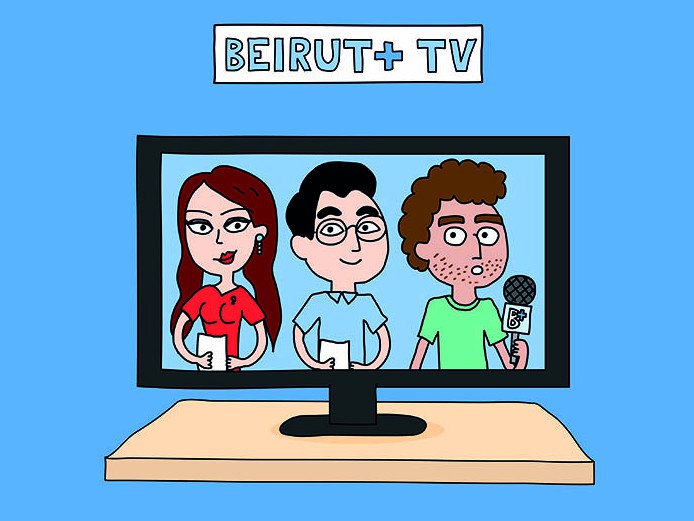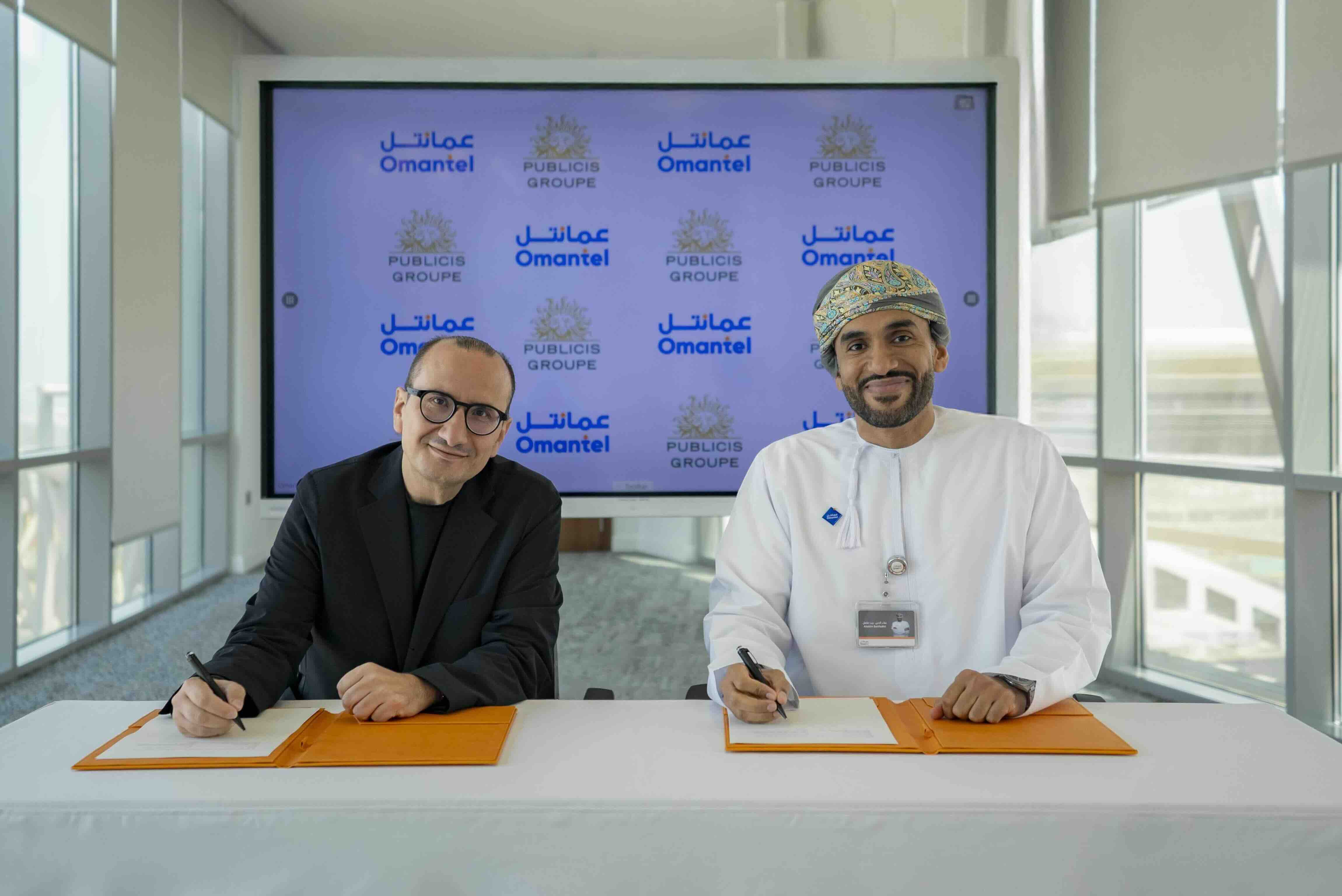News - Digital/Tech
Beirut+ TV’s Animated World
by Jessie Carpenter
March 16, 2015
.jpg) Advertisement
AdvertisementIf you haven’t checked out Beirut+ TV yet, then stop what you’re doing, check out their following website and then come back and read this article.
Beirut+ TV is the brainchild of Maya Zankoul and Toni Yammine and is produced by their firm Wezank. This humorous and quirky animated web series was originally in the pipeline back in 2012. At that time it was envisaged for the TV, but after a market study, it was deemed best to go online and to opt for short 2 to 3-minute episodes. Why? Because Lebanese TV stations have low budgets and animation has a high cost per minute. Not to mention that online “TV” is growing in popularity and boasts much greater reach.
The illustration style is close to Maya Zankoul’s original work, but has certain obvious tweaks such as thicker strokes, different character proportions, and the addition of noses on the characters faces. “However, the hallmarks are still a very simple style, using a basic colour palette, and straightforward drawings, as I believe the medium is the message, and we are not creating an artistic project, rather quick weekly episodes that people will watch for a few minutes, laugh (hopefully) and then go on with their day,” says Zankoul.
Beirut+ TV features 100% original work and is the first project of its kind in Lebanon. In other words, it is not an “Arabised” version of an international TV concept or show. As Zankoul explains: “Although animated series are a known format worldwide, the content, characters, and world we have created are unique. Also, we came up with the format whereby each episode is the equivalent of zapping to the channel for a couple of minutes, watching whatever comes up, and then zapping out of it, thus replicating the way TV works. In a way, we see television as being somehow ‘vintage’, and Beirut+ TV is also an acknowledgment of TV as we remember it when we were younger.”
Beirut+ TV boasts a rich mix of shows that are inspired by what’s running on local stations. Timeless classics and the latest programmes are all potential muses. This fuel for the fire doubles as an effective strategy for creation as Zankoul explains, “In a way, the show we choose for each episode is a vessel for our message. Local TV is very rich in content, and constantly gives us ideas for our episode, either to criticize or use for our story.”
Beirut+ TV boradcasted more than 15 episodes so far and the ones that have captured the hearts of a wider public have included the New Year's Eve special with Beirut+ TV’s very own clairvoyant, Mkheyel Kousa, and the show that sells real estate. According to Zankoul, “What makes them most appealing is that it's a way for the public to vent, since many of them find these shows on TV offensive or maybe irritating.”
Fred and Vanessa, Beirut+ TV’s exclusive star presenters, are the main characters and are supported by a cohort of characters such as Roy the reporter. “This allowed us flexibility in the way we tell the stories, and also allowed us to create an attachment between the viewers and the characters,” explains Zankoul. And this seems to be a winning strategy since every character has a fan base though Vanessa has won the lion’s share. Zankoul thinks Vanessa is such a success because “she defies the typical ‘bimbo’ style of women we are used to see on local televisions. She is more authentic, and she's honest in front of the viewers. She also represents the typical Lebanese personality, who is always worried of looking good and keen on presenting the best to her audience.”
Since Beirut+ TV is online, it’s worth exploring which episodes have gone viral, and what secret formula made them go viral. Zankoul explains, “The episode which has mostly gone viral is the gossip show in which we discussed Lebanese-American porn star Mia Khalifa. The show was called ‘Ekhir Khabriyye’ (latest story) and the reason we believe this has gone viral is because it was a hot topic that we discussed while it was still hot (pun intended). What also helped was that many people were also searching for the topic, and they landed on our show as well.”
Before Beirut+ TV’s launch, a two-month promotion campaign was kicked off. The communication approach was targeted at making people think that a real television station was launching in Lebanon. Two teasers were created as a parody, but they mimicked the way local stations market themselves so well that many people thought they were the actual teasers for a traditional station. This definitely helped create a buzz around it. After all that build up, a launch event announce the project to the media, explaining what it really was. At the moment Beirut+ TV’s marketing strategy relies on the creation of sharable content coupled with the occasional Facebook post boosts so the content can reach more people.
Tune in to Beirut+ TV. There’s a lot more to come.









.jpg)







